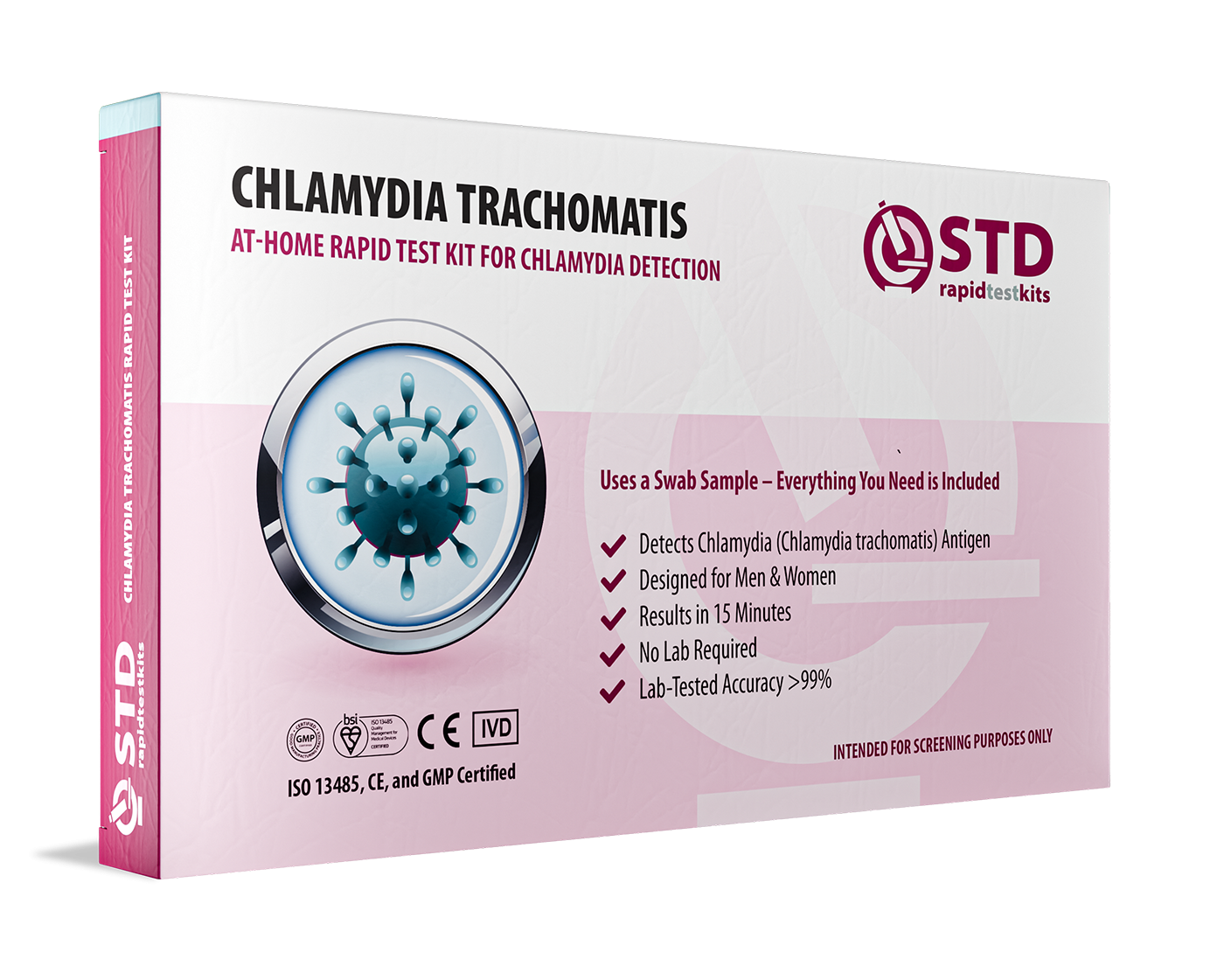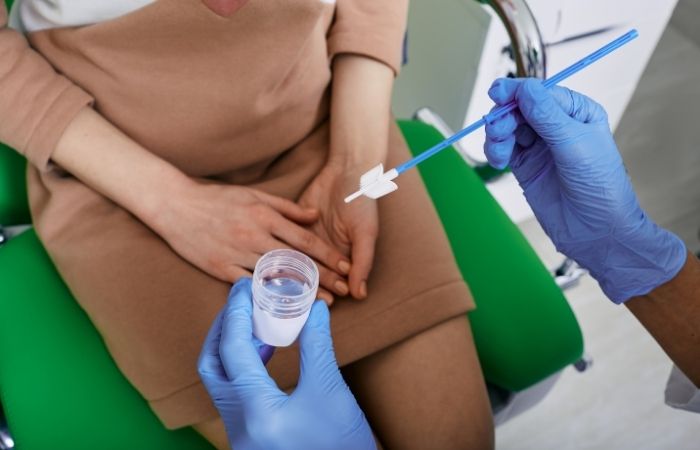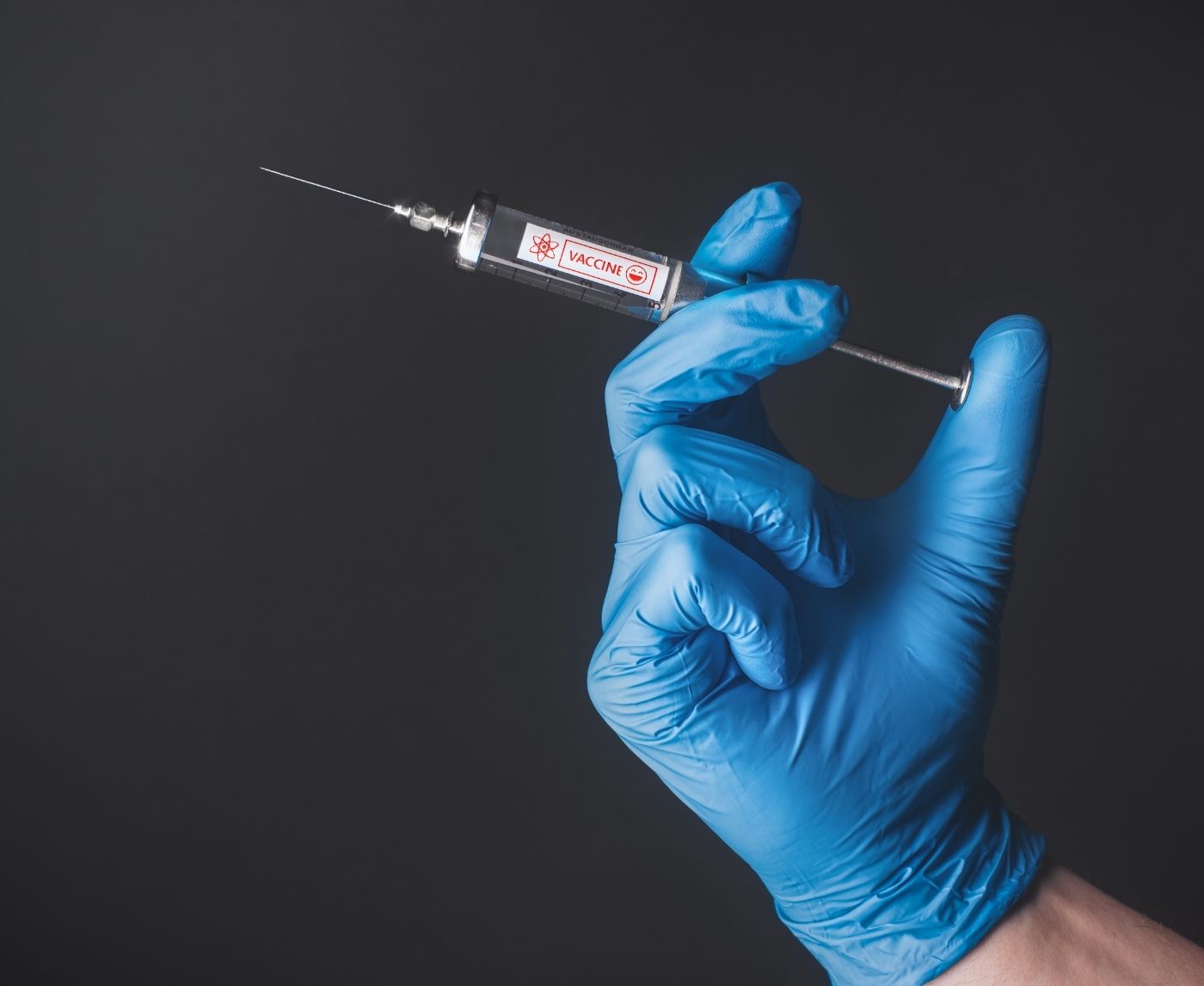The Silent Epidemic mRNA Is Targeting Next
Chlamydia isn’t loud, and it doesn’t come with an obvious rash or headline-grabbing symptoms. That’s what makes it dangerous. Around 70% of women and 50% of men who have Chlamydia trachomatis show no symptoms at all, until they’re facing complications like infertility or pelvic inflammatory disease. It’s the leading bacterial STI in the world, and yet we’ve never had a vaccine. Until now.
In 2024, Sanofi and Evaxion announced a new mRNA vaccine candidate to target this exact problem. With the FDA granting it “fast track” status, it’s clear: public health agencies are done waiting for silent infections to keep causing long-term damage.
This vaccine isn’t just about stopping an infection, it’s about halting a ripple effect of pain, shame, and lost fertility that often unfolds without warning. Especially for people who don’t know they’re infected, this could be the biggest sexual health shift in decades.

People are also looking for: If I only received oral, can I still get an STD?
Why a Chlamydia Vaccine Took So Long
We’ve had vaccines for HPV and Hepatitis B for years. So why not Chlamydia? The short answer: biology. Chlamydia trachomatis is an intracellular bacterium, which means it hides inside your cells, like a virus. That makes it hard for traditional vaccines (which rely on antibodies) to detect and destroy it effectively.
Before mRNA, vaccine attempts involved dead bacteria, weakened strains, or protein subunits, all of which failed to generate strong or lasting immunity. Many earlier candidates didn’t protect against reinfection, and some even caused worse immune reactions.
But mRNA vaccines don’t play by those old rules. They teach your body to make specific bacterial proteins that trigger a targeted T-cell response, especially the kind that matters for intracellular invaders. That’s why this technology finally cracked a problem that’s stumped vaccine researchers for decades.
What Makes the mRNA Chlamydia Vaccine Different?
This isn’t just the COVID blueprint repeated. Sanofi and Evaxion’s vaccine uses a proprietary mRNA platform that instructs cells to make carefully selected antigens, proteins that mimic what Chlamydia displays on its surface during infection.
Those antigens are delivered via lipid nanoparticles, tiny fat bubbles that slip into cells without triggering dangerous inflammation. Once inside, your body reads the mRNA “blueprint,” makes the protein, then mounts an immune response, storing that recognition in T-cell memory. When the real bacteria shows up, your immune system’s already armed.
What’s unique here is the vaccine’s focus on both mucosal immunity (important for vaginal and rectal protection) and systemic immunity (important for stopping spread through the body). That combo could finally offer full-body protection for an STI that doesn’t stay in one place.
Who’s In the Trial, and What Happens Next?
The phase 1/2 clinical trial for this mRNA vaccine (NCT06891417) launched in early 2025. It’s targeting healthy adults aged 18–29, the demographic most at risk for chlamydia and its complications. Participants receive either the mRNA vaccine or a placebo, and researchers monitor their antibody levels, immune memory, and safety profile over several months.
By the end of this trial, we’ll know whether the shot triggers a strong immune response, what kind of side effects appear, and whether it’s worth scaling to phase 3, larger studies that could fast-track it toward approval.
And yes, the hope is that this becomes part of routine sexual health care, especially for young adults, people with multiple partners, and those with recurring STIs. It’s prevention, but it’s also peace of mind.
Check Your STD Status in Minutes
Test at Home with RemediumChlamydia Test Kit

 For Men & Women
For Men & Women Results in Minutes
Results in Minutes No Lab Needed
No Lab Needed Private & Discreet
Private & DiscreetOrder Now $33.99 $49.00
Why This Shot Could Change Everything for Sexual Health
This isn’t just a scientific milestone, it’s a sexual health revolution. If successful, the mRNA chlamydia vaccine could prevent millions of silent infections, particularly in women and AFAB (assigned female at birth) individuals who often bear the brunt of long-term complications.
Key benefits include
- Fertility Protection: Preventing pelvic inflammatory disease and scarring in the reproductive tract
- Reinfection Reduction: A vaccine may block not just first-time infections, but recurring ones that evade detection
- Public Health Shield: Cutting down on asymptomatic transmission means fewer STI surprises for everyone
Even for those already dealing with recurrent chlamydia, this could offer a protective barrier against new exposures. It’s like getting an immune system heads-up for the next unexpected hookup, or the next time your partner forgets to test.
The Challenges: Safety, Stigma, and the mRNA Trust Gap
No new vaccine comes without baggage. Even though mRNA vaccines have shown a strong safety profile in COVID-19 trials, public trust is still rebuilding. Some people remain skeptical, especially when it comes to sexual health interventions tied to new tech.
Here are the real challenges we’re watching:
- Side Effects: Common ones like fatigue, headache, and mild fever are expected, but monitoring for rare immune reactions is key
- Stigma: Will people be embarrassed to get an STI vaccine? Just like HPV vaccines faced early on, social acceptance matters
- Access: Will this be covered by insurance, or out of reach for communities already underserved by sexual health care?
Still, the risks of not having a vaccine are higher: infertility, chronic pain, and lifelong reproductive complications. The balance is shifting in favor of protection over fear.

People are also looking for: Can chlamydia really cause infertility after just one infection?
What You Can Do While We Wait for Approval
This vaccine won’t hit pharmacies or clinics tomorrow. But that doesn’t mean you’re powerless. Here’s what sexual health experts recommend while trials are underway:
- Test Regularly: If you're under 30 or sexually active with new partners, get tested for chlamydia every 3–6 months. Try an at-home chlamydia test kit if clinics aren’t convenient.
- Communicate Clearly: Ask partners if they’ve been tested recently. Normalizing the conversation helps reduce stigma for everyone.
- Practice Safer Sex: Condoms don’t eliminate risk but reduce it significantly, especially with a new or non-monogamous partner.
If and when this vaccine gets approved, ask your provider about it, especially if you’ve ever had chlamydia before. Recurrent infections are common, and this shot could be your best defense yet.
The Data: What We Know So Far
It’s early days, but what’s been published is promising. Preclinical animal trials showed high levels of antigen-specific T-cell responses and protective immunity after vaginal challenge with live Chlamydia trachomatis. Translation: the vaccine worked even in the harshest real-world STI conditions.
The FDA’s fast track designation was granted based on three criteria: the lack of existing preventative options, the risk of untreated infections, and the novel mechanism of the vaccine. That’s rare, and it means regulators are watching this one closely.
Key milestones ahead:
- Q4 2025: Completion of phase 1/2 trial with full immune response data
- 2026: Potential launch of phase 3 studies with broader population groups
Every data point so far supports a major breakthrough. If these trends hold, we could be looking at the first approved chlamydia vaccine in history by the end of the decade.
What the Experts Are Saying
Dr. Karen Lichtenstein, an immunologist at UCLA, said it best: “If this vaccine does what early data suggests, it will be as transformative as the HPV shot, but with less public awareness. People don’t talk about chlamydia until it’s already caused damage. This gives us a way to stop it before that happens.”
Public health agencies agree. According to the CDC, the U.S. sees more than 1.6 million reported cases of chlamydia each year, but actual infections could be double that due to under-testing. Preventing even half of those would drastically reduce the burden on clinics, ERs, and long-term fertility care.
Clinicians in STI hotspots like Atlanta, Miami, and Los Angeles are already preparing educational outreach for when the vaccine is approved. The goal? Make it as normal as getting your flu shot.
Check Your STD Status in Minutes
Test at Home with Remedium7-in-1 STD Test Kit

 For Men & Women
For Men & Women Results in Minutes
Results in Minutes No Lab Needed
No Lab Needed Private & Discreet
Private & DiscreetOrder Now $129.00 $343.00
For all 7 tests
Why We Never Had a Chlamydia Vaccine Before
Let’s be blunt: chlamydia was ignored. While vaccines for polio, measles, and even HPV were rushed to the front of the public health line, STIs like chlamydia got stuck in the sexual shame closet. There wasn’t public demand, research funding was tight, and until mRNA arrived, the science just didn’t deliver.
The last major attempt at a chlamydia vaccine was over a decade ago, and it stalled in early human trials. It wasn’t until the success of COVID mRNA vaccines proved we could teach the body to recognize hidden threats that chlamydia research got its second wind.
Sanofi and Evaxion's project marks the first time in history this STI has had a vaccine with both funding and fast-track approval. We’re rewriting decades of missed opportunities in real time.
The Future: What This Means for STI Prevention
This isn’t a one-off. Chlamydia may just be the first in a new wave of mRNA vaccines targeting non-viral STIs and other reproductive infections. Syphilis, gonorrhea, and even herpes are all on biotech watchlists.
Here’s what experts predict:
- Multi-pathogen STI vaccines: Combo shots that protect against more than one infection
- Routine STI vaccination: As common as a flu shot, especially for high-risk populations
- Customized mRNA libraries: Vaccines tailored to a person’s STI history or immune response
If this trial succeeds, it won't just change how we handle chlamydia, it’ll change what we expect from sexual health in the 2030s and beyond.
“I Wish I’d Had This Vaccine”: A Personal Story
Anonymous, 26:
“I never had symptoms. I only found out because my IUD got infected, and the OB said it looked like PID. I tested positive for chlamydia three times in two years. Now I’m dealing with fertility specialists and I’m not even 30. If I’d had this vaccine back in college, maybe none of this would’ve happened.”
It’s not just a sob story, it’s a common one. Most people don’t know they’re infected. By the time they do, damage is already done. This vaccine isn’t just about prevention, it’s about changing the ending to thousands of stories like this one.
Common Myths and Misconceptions
Let’s bust some of the usual internet whispers:
mRNA changes your DNA.
Nope. mRNA never enters the cell nucleus, so it can’t touch your DNA.
You only need a vaccine if you’re promiscuous.
False. Chlamydia spreads easily even in monogamous relationships, especially when partners aren’t tested often.
If I’ve had chlamydia before, I’m immune.
Definitely not. Reinfection is common, and past infections don’t build lasting immunity.
Science, not shame, should lead the conversation. And the science says: vaccines work when you get them before the damage starts.
FAQs
1. Can you get chlamydia from a toilet seat?
No. Chlamydia is transmitted through sexual contact, oral, vaginal, or anal, not from surfaces or casual contact.
2. the mRNA vaccine cure chlamydia if I already have it?
No. This vaccine is preventative, not a treatment. You’ll still need antibiotics for active infections.
3. How many doses will the chlamydia vaccine require?
Likely two doses, similar to COVID mRNA vaccines, but final dosing is still in study.
4. Is it safe to get the chlamydia vaccine while on birth control?
Yes. There’s no known interaction between mRNA vaccines and hormonal contraceptives.
5. Can men benefit from the vaccine?
Absolutely. While women often face worse complications, men can transmit and be reinfected as well.
6. Will insurance cover it?
If approved, it’s likely to be covered, especially with fast track designation, but exact coverage will vary by provider.
7. When will it be available?
Possibly by 2027 if trials succeed, with broader rollout following phase 3 trials.
8. Can I still get tested after the vaccine?
Yes, and you should. No vaccine is 100% effective, testing remains essential.
9. Does this replace condoms?
No. The vaccine reduces risk but doesn’t protect against all STIs, barrier methods still matter.
10. What if I’m allergic to mRNA vaccines?
Talk to your doctor. Allergies are rare but important to flag before any vaccine.
This Is Bigger Than Just a Shot
We’re watching the future of sexual health unfold, one mRNA molecule at a time. The new chlamydia vaccine isn’t just a scientific breakthrough; it’s a cultural one. It says that people deserve protection even from the infections they can’t see coming. It says we’re done pretending STI prevention is only for “other people.”
Whether you’re single, coupled, exploring, or celibate, this vaccine could one day be part of your story. Until then, the best move you can make is staying tested, staying informed, and staying empowered.
Explore our full range of at-home STI tests here, including the Chlamydia Rapid Test Kit. Don’t wait for approval to take control of your health.
Sources
1. CDC: Sexually Transmitted Diseases (STDs)
2. FDA Fast Tracks mRNA Vaccine for Chlamydia
3. Pharmacy Times: Chlamydia Vaccine Fast-Tracked










